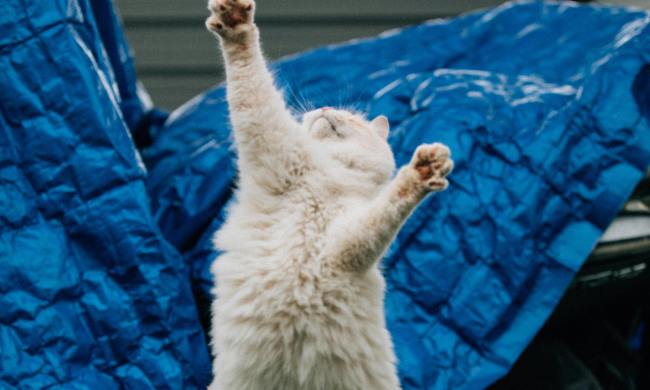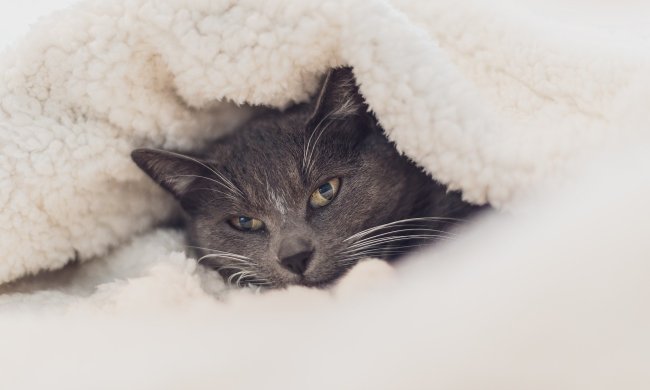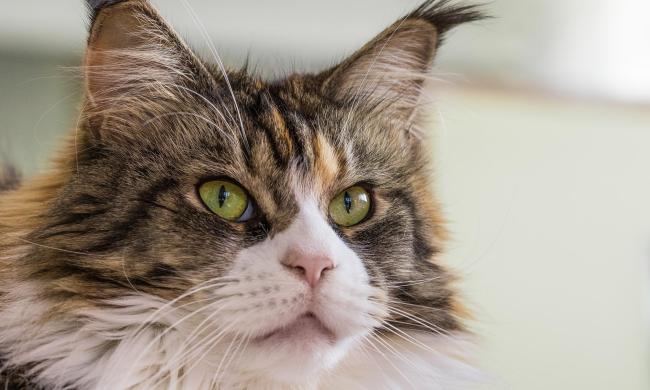Cats enjoy sleeping with humans. If you’ve always permitted your furry feline to sleep in bed with you, you are clearly part of the majority. The Centers for Disease Control and Prevention (CDC) estimates that around 50% of pet owners in the United States allow their pet to sleep in bed with them. A survey of 2,000 found that pet owners let their cats and dogs share their beds with them because it makes them feel safer, as reported in a poll conducted by the CDC.
Sharing a bed is a sign of closeness, for you and your cat. Making contact with your feline friend reduces stress and slows your heart rate. However, cats, just like some other adorable pets, should not be left alone for a long time. If you plan to sleep apart from your cat, it is advisable to offer your furry pal a comfortable alternative to your bed in other areas of your home.
To really understand why you should let your cat sleep in your bed, this article highlights the pros and cons of allowing your cat to sleep beside you.
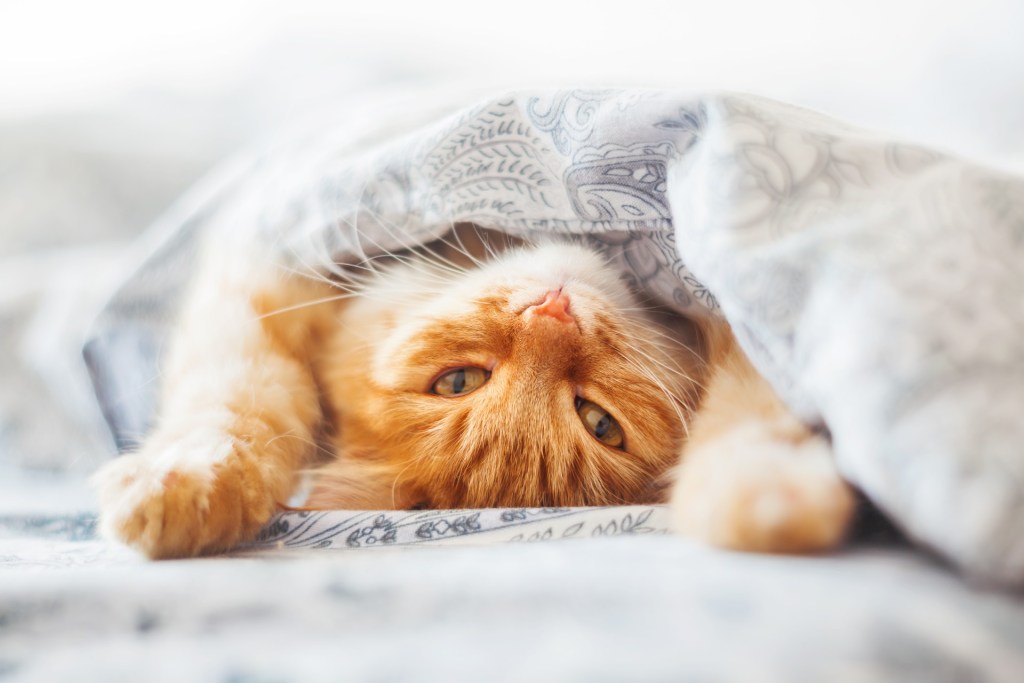
Pros of cats sleeping in bed with you
Feeling safe: Wondering why cats sleep with humans? Well, there are plenty of reasons, but the primary one is the sense of security it provides. They want a place that is secure and warm, and that place is you. Cats are very vulnerable, so your cat is indicating that he trusts you and feels safe beside you. However, cats sleep in short bursts, which makes them remain active at night and will possibly interrupt your sleep.
Protection against loneliness: As a cat lover, you see your cat as your partner that doesn’t make you bored and you can play with during your lonely times. The unconditional love your cat offers is underrated. And for someone who is fighting the terrible symptoms of depression or suffers nightmares, this connection is very valuable. This is undoubtedly one of the things that people who are battling depression need more than anything — the constant presence of encouragement, love, and affection.
Stress release: You increase the level of oxytocin and lower blood pressure with the company of your cat. It gives both of you a sense of security, emotionally and physically.
Helps you fall asleep: It is known that pets help people to fall asleep easier, especially for those fighting a sleep disorder, your cat is no exception. When cats sleep with you, their presence would likely promote a feeling of safety, stress relief, and calmness. In other words, your pet is capable of taking away the things that keep you up at night.
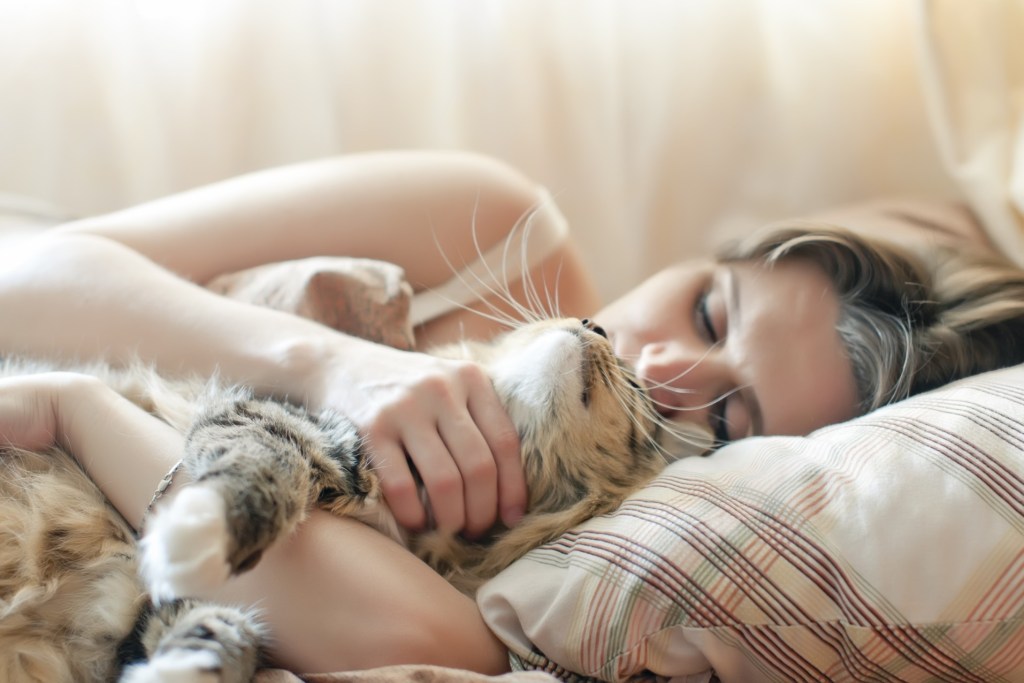
Cons of cats sleeping in bed with you
There are some health risks involved in allowing your cat to sleep in your bed with you. These include the risk of:
Sleep disruption
As earlier stated, cats are vulnerable and remain very active at night. Therefore, you should engage them with either an automatic feeder (i.e., keeping your cat fed and interested in the form of a midnight snack) or having an intense play session before bedtime, which would make your pet more tired and would result in less disturbances. Or, you could also consider buying a second cat for company.
Allergies/Asthma
You don’t necessarily need to be allergic or to be asthmatic, but cats suffer a wide range of skin problems such as scratching, excessive licking, hair loss, scabs, bumps and chewing. However, cats are known for hiding their diseases and discomfort.
Exposure to bacteria and parasites
Common cat diseases may include feline immunodeficiency virus (FIV), rabies, ringworm, and diabetes. Therefore, it is important to keep your cats clean, healthy, and disease-free.
Conclusively, there are arguments both for and against cats sleeping in bed with their owners. Basically, it’s about personal perspective and health conditions. If you feel that sharing your bed with your cat is all right, then yes you should do so, provided the health risks are being handled properly.
